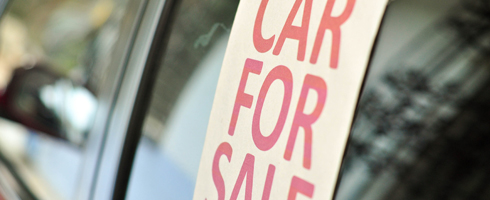Your smash repairer’s advice on buying a car.

If you’re like most people, your car is the second biggest investment you’ll make in your life (after your house). And if you’re like most people, you also know next to nothing about cars or what you should look for when buying one. We’ve seen the results of just about every worst-case scenario and ill-advised purchase, and we’ve put together a few things everyone should think about before they part with their money.
Before you start looking
1. Be practical. Your car should be functional. Think about what sort of use your car will see, how many people it will be carrying and whether it will be driving primarily in the city or going off-road. Do you need a ute, a people-mover or a zippy hatchback? Do you need room for child safety seats or work equipment? Above all other considerations, you should be asking, what do I need my car to do for me?
2. Be aware of related costs. You don’t stop paying for a car when you take it home, and there are several factors which contribute to the ongoing costs of owning a vehicle. Larger and more powerful cars will have greater fuel expenses. Imported vehicles, high-performance vehicles and modified vehicles can all add a significant amount to your insurance premium. Older cars will become increasingly expensive to service and maintain. And that’s before you even look at the interest you’ll be paying on any car finance. Always be aware of the real costs of the sort of vehicle you’re considering, not just the ticket price.
Buying a new car
1. Choose your add-ons wisely. Car dealers don’t make a lot of money from selling a new car, and will usually try to ‘up sell’ some extras to make a healthier profit. Some of these are superfluous and should be avoided, and some can actually add value to your car and enhance your driving experience. If they don’t come standard, the following are worth considering:
• Safety features like additional airbags, electronic stability, parking sensors and reversing cameras.
• Comfort and convenience features like sat nav, cruise control and Bluetooth
• Re-sale winners like automatic transmission, alloy wheels, auto lights and washers.
Add-ons not worth the expense are:
• ‘Protection’ and ‘proofing’ features like rust-proofing, paint protection and fabric protection. Most of these have been superseded by new production materials and processes, and none would replace regular care and maintenance.
2. Be smart with your insurance. Be prepared with everything you need to insure your new car immediately by phone before you get behind the wheel. Any modifications you make to your car’s original specification must also be disclosed to your insurance company, as they may affect the safety rating or performance of your vehicle.
3. Research your warranty. You will almost always be offered an extended warranty by the dealer, and it’s worth checking what else is available and what surprises are hidden in the fine print before you agree to buy it.
Buying a second-hand car
1. Know what you’re getting into. Private car sales can be attractive to you as a buyer because they often have a lower price tag and can seem to involve less fuss and no pushy sales talk. But be aware that they’re also attractive to certain kinds of sellers – those who don’t want their vehicle examined too closely. Make sure you look over the logbook and registration papers, as well as the seller’s driver’s licence. If you’re not comfortable for any reason, or if it seems too good to be true, don’t buy it.
2. Get a second opinion. Whether you’re buying through a dealership or a private sale, you should always get the vehicle inspected by a professional, either your regular, trusted mechanic or an RAC vehicle inspector. The small extra cost could save you thousands in servicing and repairs for problems you wouldn’t pick up by yourself. If the seller resists having the car inspected, they’re likely trying to hide something.
3. Test drive. Always take the car out for a test drive. Drive it on different surfaces and at different speeds – many problems won’t be apparent until the vehicle is tested on a steep incline or sudden stop.
4. Check the paper trail. You should always check the Personal Property Securities Register (PPSR) to make sure the car isn’t listed as stolen or written-off and that it doesn’t have any outstanding finance (you can do this by entering the VIN at ppsr.gov.au). This will ensure you don’t pay for a vehicle which can’t be insured, or which is due to be repossessed by debt collectors.
For more information, or to see what else we’re up to, please follow us on Twitter or check our Facebook page.


